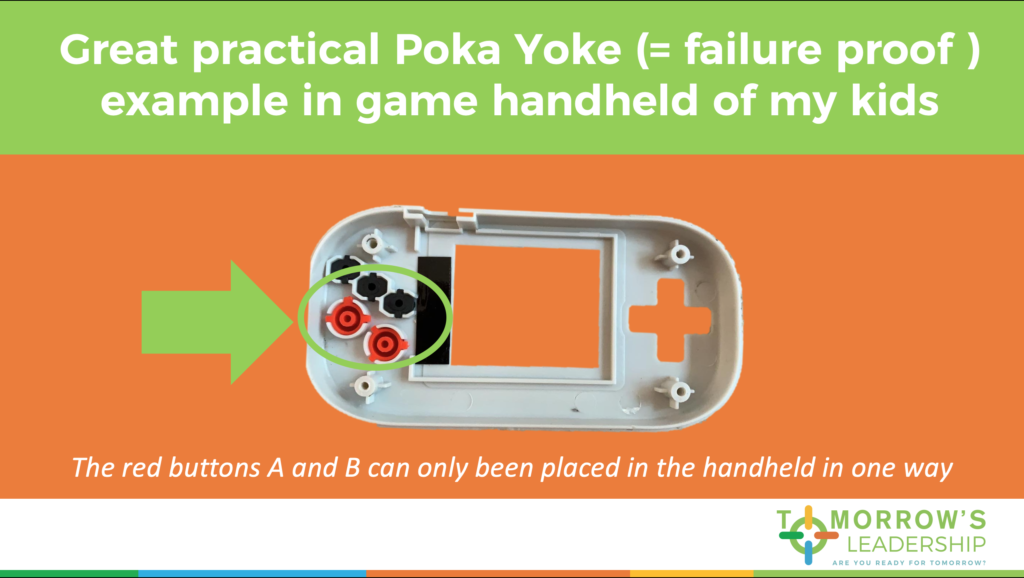Success of a tool = tool + desired behavior!
Poka Yoke is a Japanese term that means ‘mistake-proofing’. A poka-yoke is a mechanism in a process that helps the operator avoid mistakes.
This comes really handy when the handheld computer of your kids doesn’t function anymore and you are kindly asked to fix it. To disassemble things is typically not really difficult, but to assemble it again and ensure all the parts are in the right place and it works again… different story!
Fortunately in this case there were not many parts, so I was able to assemble it. Actually they made it pretty easy for me, because the red ‘A’ and ‘B’ buttons were designed Poka Yoke; they only fit in one way. End of story: I fixed the handheld computer and was the hero of the day! Yeah! 🙂

Poka Yoke is one of the tools that belongs under the umbrella of Lean Manufacturing. Already 20 years ago I learnt a lot about Lean and Six Sigma at the University and about 15 years ago I obtained my Lean Six Sigma Black Belt and was dreaming in Lean methodology.
For me it is really funny to see the Agile hype nowadays. I don’t see a lot of differences between Lean Six Sigma and Agile to be honest. In my mind these are all approaches that come with a specific mindsets and tools to work towards a certain culture.
Lean/Agile = way of thinking (mindset/culture) + way of working (including tools)
Some of these approaches have tools that are more focust on reducing waste or variation, others on the ability to adopt quickly. But in essence the objective of these approaches are the same:
Create a culture including an efficient and effective way of working that enables the organization to ADD VALUE to the customer.
Here is one important thing that people easily overlook: creating a culture is not only about processes and tools. Also behavior should be part of it!
Yeah, I know. Really obvious. But in practice I see many organizations implementing Lean or Agile by implementing the tools not the mindset. And then ofcourse it won’t be successful.
Avoid having retrospectives where you only talk about the content and processes. Talk about the behavior and feelings as well. Only then you will develop as a team and organization!
